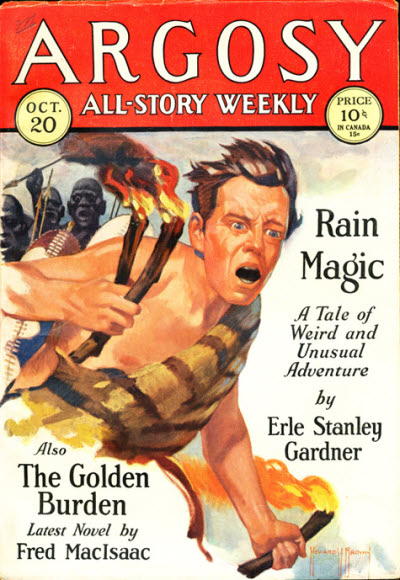[While you're reading this article, why not tune in to KGJ, Radio Galactic Journey, playing all the current hits: pop, rock, soul, folk, jazz, country — you might just hear a song from the album released by a new British band: The Beatles!]

by Mark Yon
It’s the end of March, and with the arrival of Spring, at last, the long, long Winter of 1962-63 has cleared. All in about a fortnight. I can’t tell you what a joy it is to feel warmth outside the house, even if the snow has now turned to rain and damp. Many meteorologists are claiming that ‘The Big Freeze’ is the coldest on record, which it certainly felt like.

I’m not sorry to see Winter go. Hopefully now normal routines can be resumed, if a little damper than usual.
Whilst I try and dry out, let’s look at this month’s New Worlds.

Play With Feeling, by Mr. Michael Moorcock
This month’s Guest Editor is one of my personal-favourite authors at the moment, but not for science fiction. I really like his Fantasy stories of Elric, the albino warrior with a blood-lust, but Mr. Moorcock has been steadily building up a reputation in science-fiction as well. Perhaps more relevant here is that he is also one of the advocates, like Mr. Brian Aldiss and Mr. J. G. Ballard, of the so-called “New Wave” of writers who are determined to rewrite the conventions of science fiction.
It may therefore not be a surprise that Mr. Moorcock uses this opportunity to explain his viewpoint and set out his stall, so to speak. It’s done well, and I expect that this Introduction may be a rallying call to others. The ongoing debate in this magazine continues, but Mr. Moorcock gives a convincing case for change.
To the stories. There’s a lot of one-word titles this month, and,
like last month, a mixture of space exploration, strange aliens and espionage stories…
Window On The Moon, by Mr E. C. Tubb
Here’s my first surprise of the issue. After the movement of the serial to the back of the issue in the last few months, here it’s the first story we read. It’s also the return of a once- New Worlds regular, Mr. E. C. Tubb. Window On the Moon is a rip-roaring, hyper-sexed tale of ‘Brits-in-Space’, with a snap-inspection, a British espionage agent and a bio-computer.
Much in the breathless style of old Tubb tales, Window On the Moon has more than a touch of Mr. Arthur C. Clarke about it, which in my opinion is not a bad thing! Admittedly it is rather more sexual than Mr. Clarke’s work and also what I remember of Mr. Tubb’s usual material, although I rather suspect that the reason for this will be explained in later issues. Certainly, after the bombast of last month’s serial, it is a pleasure to read something that just does what it needs to do. But is it memorable? Almost a four out of five, but, in the end, a three out of five. [The Journey does not give half-stars for shorts… (Ed.)]
Quest, by Mr. Lee Harding
The return of Mr. Harding gives us a story of one man’s search to find something ‘real’ in an increasingly artificial world, although it is never clear exactly why there is this need. It reminded me of Mr. Philip K. Dick’s stories about the nature of identity and artificiality. There’s a twist at the end, which isn’t as original as it would like to be, but the story was an enjoyable read. Three out of five.
Dossier, by Mr. John Rackham
From another New Worlds regular, Mr. Rackham’s tale this time is a variant of the old ‘superhuman’ idea, with the key character using his superior powers of deduction to retrieve an important scientist captured by an enemy. It’s an exciting story, but I felt that the story hindered for being a retread. Three out of five.
Compensation, by Mr. James Inglis
Continuing this month’s issue trend of one-word titles, Mr. Inglis’s story is one of very different aliens meeting. When an Earth expedition meets the Thorm, the interspecies communication is more than the humans expected, or hoped for. The story ends with a pleasingly positive revelation, which suggests the uplift of the human race — but the ending felt a little insipid. Three out of five points.
Adaptation, by Mr. Roy Robinson
We finish this month’s fiction with a novelette from an author new to me, but who was actually last in New Worlds in 1959. An expedition team are sent to a new planet to trial conditions before the colonists arrive, and there find a rapidly adapting species that challenges their presence. A story that was more engaging than I thought it would be, the escalating events had a great sense of peril throughout until an ending that seemed appropriate. Four out of five — my favourite story of the issue.

At the back of the issue The Book Review from Mr. Leslie Flood returns this month, with reviews of Mr. J.G. Ballard’s The Drowned World (“local boy done good”) and the “thoroughly enjoyable, non-cerebral” entertainment of Mr. Poul Anderson’s After Doomsday.

In summary, the editorship of Mr Moorcock has produced a much-needed breath of fresh air this month. An issue with less filler than of late. This may be the sign of a change. The serial and novelette in particular seem stronger and generally better overall, combining aspects of the traditional with the ‘New Wave’.





































































